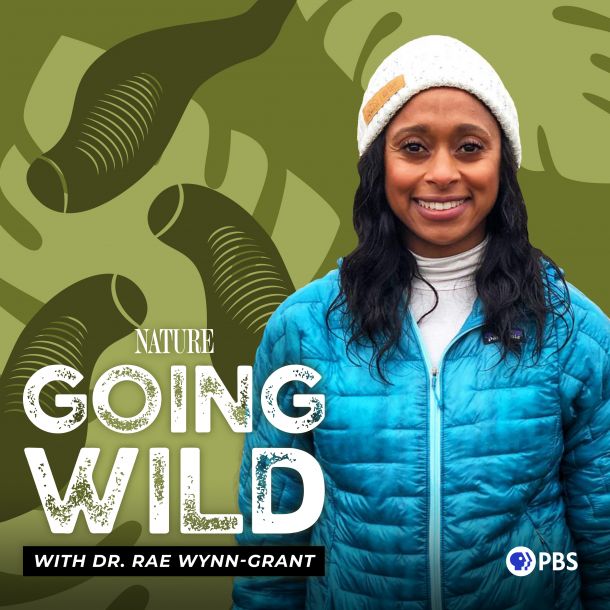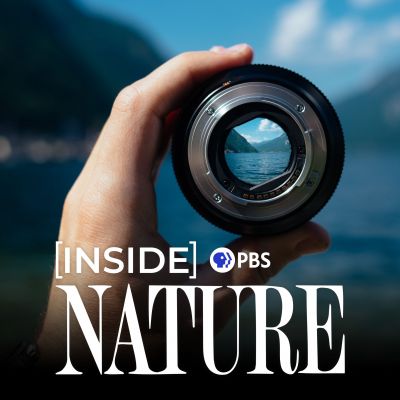This is Going Wild: Shorts and I’m Dr. Rae Wynn-Grant.
You already heard about my experience tracking lemurs in this mysterious rainforest in Madagascar, but what I left out of that story was just how hard camping there for five weeks was on my body. And yes, there was some blood involved.
So now I’m telling that story.
Sometimes I feel like I don’t even know how to describe what it was like living in that rainforest for five weeks because, for one, I think it goes without saying, but Oh my gosh it rains. It rains so much and there was something that I didn’t know about again, having never done work in the tropics and those were tree leeches.
Because it rains so much these leeches are just on the leaves of trees, like in different parts of the canopy of the rainforest and when it rains, the rain slides them off the leaves and they drop down onto animals or whatnot, but also onto people. I would find leeches in my hair, they, for the most part, would fall kind of onto your neck and you don’t feel them, right, because that’s the cool thing about leeches is that they start sucking your blood and you have no idea.
So, although this was something we had to deal with every single day, there weren’t any actual long-term consequences of this. It’s more the principle that it was really gross and pretty disturbing.
I distinctly remember one of my colleagues, for whatever reason, had a white shirt, and I can’t imagine why anyone would bring a white shirt camping for so long in the rainforest. He had gone out for the day, and leeches had fallen from the trees, you know, onto his head, gone down his neck and onto his back. And so when he returned to camp, he took off his backpack and his backpack was covered in blood. It just looked like a bloody mess and he had no idea. And so he peeled off his shirt after we were all freaking out and we all took turns, just peeling leeches off of his back Oh, my gosh, the tree leeches. No one talks about that when they talk, you know, and I will admit, I don’t usually talk about it because I talk about how awesome and adventurous it was, but tree leeches were a big part of life as well. And I just, like, shiver a little when I think about it.
Our camp was big. Our camp was big. Our team at its largest was about 50 people.
And that included a cook. We had one man, a Malagasy man, who did all the cooking. So he made a fire and he kept, you know, a couple of big cauldrons of water boiling. Some of it was for water to drink and a lot of it was for cooking and we mostly ate rice.
At the beginning of the expedition, we had a number of things. I remember we had dried, salted fish that had been taken with us and, you know, and that kind of thing. But there were, I’m not exaggerating when I say that there were days when it was rice three meals a day,
If I talk about it, I feel like I need to be really careful because it was hard. It was hard and unpleasant to just have rice to eat. And at the same time, you know, Madagascar is a country that is struggling with high poverty rates. And so there are people who don’t even have rice to eat every day.
With that said, there was a lot of malnourishment that came along with that. And I remember it didn’t really hit me that I was struggling with nutrition until after the expedition was over when we left the rainforest and we were able to get a meal. And I remember my meal had eggs. It was just bread and eggs.
And I remember once I ate probably half of it, I felt like this feeling come over my body. It was like protein, nutrients being absorbed in my body. And all of a sudden I felt alive in this way that I hadn’t in weeks. And that’s what made me realize, Oh my gosh… I think I was bordering on a bit of malnutrition having only had rice three meals a day for so many days.
So to recap, there was almost constant rain. There were tree leeches that fell on our bodies. There was strenuous exercise every single day. There was rice constantly as the only food option. And then there was this other way, more personal way, more private reason that made living in this rain forest. So tough.
I had done expeditions where I was the only woman I had done lots of fieldwork, where sometimes it was just me. Um, but this was a big group of men. So you know, of the 20 to 50 people who were there at a time, there were times that I was the only woman at camp.
I have this distinct memory that I’m finding awkward to talk about, but I, for whatever reason, my body kind of revolted against me also during this whole experience, and I had my period for the whole time. Not for the, you know, typical few days that it’s supposed to last, but the entire time, and I didn’t have other women to talk to about it. So I felt like I was hiding, you know, and being secretive about a lot of stuff, just going on with my own health and body, because there was this discomfort by being in a group of men.
I can’t believe I went through that… I did not have enough products to take care of myself and I remember trying to like, be a survivalist and fashion, you know, different menstrual products out of nature. You know, mosses and, you know, I remembered like if you read about like, Oh what did Native American women use? And I literally remember reading moss and I was like, I don’t think it was tropical moss, but I collected some moss and then tried to dry it in the sun and then, like, put it in my underwear. And I was like, what is this?
What is, what actually is this life?
When I think of, “Would I do it again?” No comes to mind first, and it’s because it was so hard. I mean, physically hard in a way that was just beyond the other expeditions that I’ve done. But then when I think of maybe the significance of a trip like that, in terms of how it could impact the environment or endangered species or conservation, then I might have to pick myself up, harness some energy and get back out.
This episode of going wild was hosted and written by me, Dr. Rae Wynn-Grant. Production by Rachel Aronoff, Danielle Broza, Nathan Tobey, and Great Feeling Studios. Editing by Jakob Lewis. Sound design by Cariad Harmon.
Danielle Broza is the Digital Lead and Fred Kaufman is the Executive Producer for Nature.
Art for this podcast was created by Arianna Bollers and Karen Brazell.
Special thanks to Amanda Schmidt, Blanche Robertson, Jayne Lisi, Chelsey Saatkamp, Natasha Padilla, and Karen Ho.
Going Wild is a new podcast by PBS Nature. Nature is an award-winning series created by the WNET Group and made possible by all of you. Funding for this podcast was provided by grants from the Anderson Family Charitable Fund and the Corporation for Public Broadcasting.



